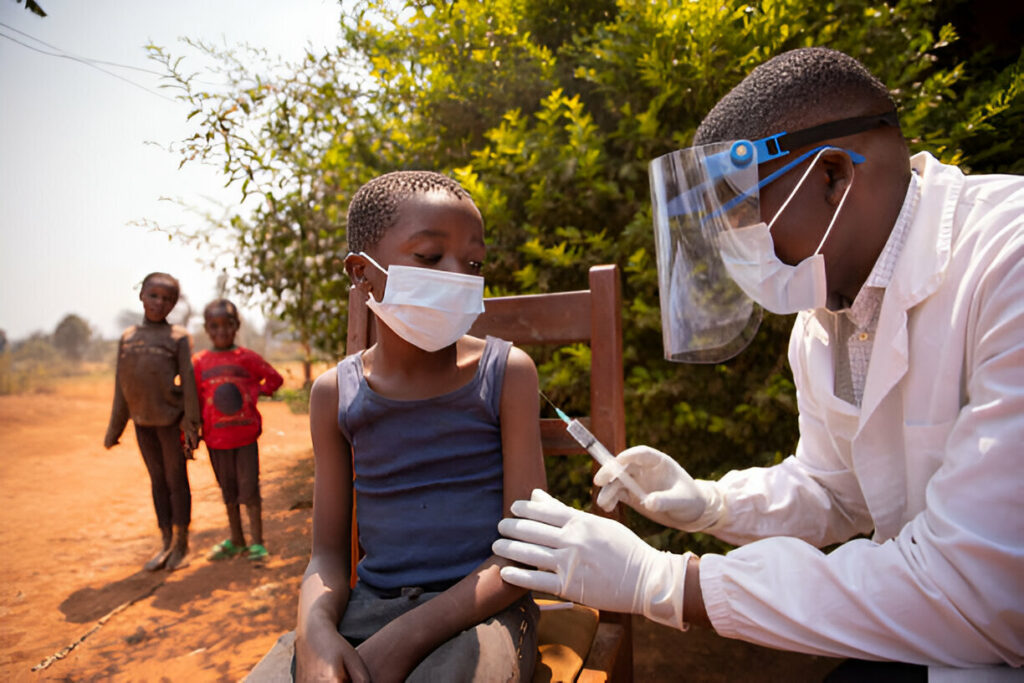CRISIS RESPONSE
Rapid Support When It’s Needed Most
In times of crisis, immediate and effective healthcare is crucial. Light a Candle Health Initiative is dedicated to providing swift and comprehensive crisis response to ensure that affected populations receive the support they need to survive and recover. Our crisis response efforts are designed to address urgent health needs, mitigate the impact of emergencies, and help communities rebuild.
Beyond immediate relief, we are committed to supporting long-term recovery and resilience. Our programs include rebuilding healthcare infrastructure, training local healthcare workers, and restoring essential services. By helping communities to rebuild stronger and more resilient, we contribute to their capacity to withstand future crises.

At Lach Initiative, we are dedicated to promoting Crisis Response initiatives at the grassroots level. Our comprehensive approach encompasses a variety of programs designed to make a lasting impact in the communities we serve. Here’s how we make a difference:
1. Life-Saving Care on the Frontlines
During natural disasters, conflicts, and other emergencies, access to medical care can be severely disrupted. Our team of skilled healthcare professionals is mobilized to deliver emergency medical services, including trauma care and disease outbreak control, directly to the affected areas. We work tirelessly to stabilize patients and provide critical treatments that save lives.
2. Making Healthcare Accessible in Hard-to-Reach Areas
In crisis situations, traditional healthcare facilities may be damaged or inaccessible. Our mobile clinics and field hospitals are equipped to bring essential medical services to those in need, no matter how remote their location. These mobile units are fully stocked with medical supplies and staffed by experienced healthcare providers, ensuring that care is available wherever it’s needed most.
3. Mental Health and Psychosocial Support
Crises often have profound psychological impacts. We provide mental health and psychosocial support to help individuals cope with trauma, loss, and stress. Our trained counselors and mental health professionals offer therapy, support groups, and resilience-building activities to promote emotional well-being and recovery.
4. Empowering Communities with Knowledge
In the aftermath of a crisis, disease outbreaks can pose significant risks. We implement health education and disease prevention programs to inform communities about hygiene practices, vaccination campaigns, and other critical measures. By empowering individuals with knowledge, we help prevent the spread of illnesses and protect public health.
5. Ensuring Effective Interventions
We continuously monitor and evaluate our crisis response efforts to ensure that our interventions are effective and meet the needs of the affected populations. This ongoing assessment helps us to improve our strategies and outcomes, providing the best possible support during emergencies.
6. Training and Capacity Building
We conduct training sessions for local healthcare workers and community health volunteers to enhance their capacity to respond to emergencies. By building local expertise, we ensure that communities are better prepared to manage health crises independently in the future.
Our Approach
1. Rapid Assessment and Deployment: Our crisis response begins with a rapid assessment of the situation. This involves understanding the immediate needs of the affected population, evaluating the extent of the damage, and identifying the most critical areas requiring intervention. Based on this assessment, we quickly deploy our medical teams, mobile clinics, and supplies to the affected areas.
2. Comprehensive Care: We provide a wide range of healthcare services to address both immediate and long-term needs. Our approach includes emergency medical services, mental health support, disease prevention, and health education. By offering holistic care, we aim to address all aspects of well-being during and after a crisis.
3. Collaboration and Coordination: Effective crisis response requires collaboration. We work closely with local authorities, international organizations, and other NGOs to coordinate our efforts and maximize our impact. Through these partnerships, we ensure a comprehensive and unified response that meets the diverse needs of affected populations.
4. Community Engagement: Engaging with local communities is essential to our approach. We involve community leaders and members in our response efforts to ensure that our interventions are culturally appropriate and address the specific needs of the population. This engagement also helps build trust and resilience within the community.
5. Long-Term Recovery and Resilience: Beyond immediate relief, we are committed to supporting long-term recovery and resilience. Our programs include rebuilding healthcare infrastructure, training local healthcare workers, and restoring essential services. By helping communities to rebuild stronger and more resilient, we contribute to their capacity to withstand future crises.
Now, it’s your turn.
Your support, in any form, is invaluable in helping us create healthier and more equitable communities. Together, we can light the way to a brighter future for all.
